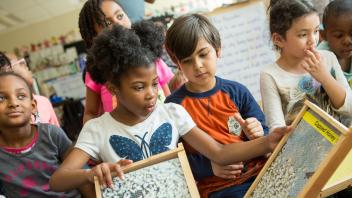Teacher question: Can we raise student achievement by teaching subject area content knowledge? I’m concerned about this approach because I work with struggling readers. We know a lot about how to help them learn to read, so I was wondering if there is evidence that teaching “knowledge” to such students really makes any difference. I recently came across a study of a widely touted reading program that is supposed to be better because it emphasizes knowledge building and yet the results weren’t positive at all (See, Gorard, & Siddiqui, 2017).
Shanahan’s response:
In February I go to my doctor for my annual health exam. You know, every 6,000 miles they change the oil, check my points, plugs, and generally make sure that I’m still hitting on all cylinders. Okay, the doctor actually checks my weight, sleep, exercise, alcohol intake, runs some blood tests, and that kind of stuff.
It’s a different experience when I’m there because something isn’t working right. Then the doctor prescribe medicine or sends me to a surgeon for a procedure.
The annual exam leads to general advice, while in the second kind of visit he intervenes.
His advice tends to be based on correlational evidence. Don’t drink too much … more than 1-2 drinks a day increases your risks. Being sedentary adds to that risk. Letting your weight climb above some point is associated with problems, too. And so on.
However, when treating me, he shifts his evidentiary requirements. For this, he requires proof that a treatment can work. No matter the problem, he’ll still proffer those general health recommendations, but he usually wouldn’t rely on them to cure my disorder.
The better we manage our general health, the less likelihood of illness and the easier it may be to treat one. However, a general health regimen is rarely enough to fix a problem.
Reading instruction works a bit like that too. If you want to specifically improve reading ability, then teaching skills like phonemic awareness, decoding, fluency, and reading comprehension strategies matter. There is much research showing that such teaching has a clear impact on learning.
Nevertheless, beyond this, there are several other actions that seem to be generally positive for reading. For these, there just aren’t studies showing clear and immediate improvement in reading ability. And yet, these things consistently correlate with better reading achievement and can be improved upon. It is not unreasonable to recommend these auto-positive behaviors (e.g., build knowledge, read to your child, encourage reading). Over time these may help particular individuals — though to what degree and how quickly would be impossible to predict.
If young children are struggling to decode and you provide several months of phonics teaching, you’d expect to see clear improvements in decoding and probably reading comprehension and spelling, too. But with something like increasing knowledge, it might take years before any general effects of this would be apparent and those effects would likely be pretty subtle; possible to measure with a population, but not with an individuals or even smaller groups like classrooms or schools.
We’re starting to see longitudinal research results that show positive achievement benefits due to volume of reading (e.g., Torppa, et al., 2019). However, these effects are decidedly small and are taking years to manifest. To me that both suggests the wisdom of encourage kids to read, and the foolishness of replacing reading instruction (which has powerful immediate effects) with free reading time (that doesn’t); just as it would be a bad idea for patients to skip dialysis for daily exercise — that just isn’t the choice.
Your letter is about one of these general abilities: knowledge. In response to your question, there are no studies showing that increasing students’ knowledge of the world reaps general reading comprehension benefits.
There are correlational studies revealing that people with more knowledge tend to be better readers. These studies tend to be badly confounded with IQ and economic advantage. Such studies hold out the possibility that increasing knowledge may improve reading, but those are just possibilities so far.
There is also substantial and unambiguous evidence showing that knowledge use is an important part of comprehension. P. David Pearson has gone so far as to define reading comprehension as “building bridges between the new and the known.” Readers use their knowledge to make sense of texts. That comprehension depends on knowledge, is not proof that increases in knowledge will lead to general improvements in reading comprehension.
Then there is experimental evidence showing that providing particular information relevant to a particular text can improve comprehension of that text. Much of this work is confounded, too. The information provided prior to reading often repeats what is in the text itself. If we tell one group of students and not the other that wombats are marsupials and then have them read an article that says that don’t be surprised if the repetition is advantageous — but this is due to repetition, not necessarily knowledge. Nevertheless, some studies have identified small comprehension benefits due to the provision of non-repeated information (e.g., Sherwood, et al., 1987).
If Mrs. Smith’s third grade spends a year studying wombats, the kids may be superstars when reading on that topic, but what about other texts? Wombat knowledge isn’t likely to improve comprehension of texts on the U.S. Civil War, 2020 elections, or relativity. Perhaps the wombat lessons can be generalized to other topics within animal behavior and development. It should be evident that reading ability has to generalize to a much wider range of text; there are just so many possible topics.
We see this problem with vocabulary (Stahl & Faribanks, 1987). Studies find that teaching the words from a text improves comprehension of that text. But the general impact of such instruction – that is, how much better students read with texts not so carefully circumscribed — tends to be much more limited (though it is above zero). Vocabulary is somewhat more flexible across a wide range of topics and texts than knowledge is. Vocabulary has both specific and general impacts, and this might be true of knowledge building as well, though to get the general payoff — the one that lets your read lots of different texts successfully — will require a great deal of knowledge.
What sense do I make of the study of knowledge teaching that you mentioned? The curriculum in question is widely recommended and claims to improve reading by increasing content knowledge. In this case it failed, for which there are three possible explanations.
One is that increasing knowledge may improve comprehension, but this particular program doesn’t increase knowledge sufficiently. It is a failure of the program, not of the theory.
Another possibility is that both theory and program are terrific, but the implementers failed. I don’t love that explanation since it is often used to defend approaches that don’t work, and it ignores the possibility that it was something in the program itself that made it hard for teachers implement. Here we don’t even know that the program works, so blaming the teachers looks like weak soup.
A third possibility. Perhaps increasing knowledge exerts a small general reading benefit across an entire population over a long period of time, but without discernible shorter-term impacts on most individuals or groups. Without large groups to provide adequate statistical power and long periods of time for knowledge levels to build up to sufficiency, there may be no noticeable effect — just like with those health analogies.
Improving reading ability through explicit and systematic daily teaching of decoding, vocabulary, fluency, and reading comprehension with sufficiently challenging texts is the best way to go since those actions have been proven repeatedly to enhance learning.
Those things are essential. But remember my doctor. There may be more to one’s reading health than that.
Building knowledge may — over a sufficiently long period of time — improve one’s reading. In addition to those explicit reading lessons, let’s encourage and support the development of knowledge. If these efforts aren’t allowed to elbow sound reading instruction aside, they cannot hurt and, in the long run, they might even help. In any event, whether these knowledge increases improve reading comprehension or not, they definitely offer other important benefits (knowing social studies and science can help us live better lives).
Towards those ends we should provide students with abundant opportunities to learn science, social studies, literature, and other subjects in school, and we need to be energetic in our efforts to make sure students gain that knowledge in those classes.
We also should make sure that there are opportunities to gain knowledge from the texts we use for reading instruction. Why read about nothing and why treat such content as nothing? Yes, we want kids to get reading practice in their lessons and we want them to extend their reading skills, but let’s be as assiduous about the learning of content from those texts as we are about mastering the skills.
It is often necessary to pull struggling readers from content classes to address their problems. There may be no alternative to this. In such cases, we should go the extra mile to ensure they are not missing out on the content of those classes (that should be required in IEPs).
Schools also could do a better job of guiding parents with media use. Often, we try to discourage kids from watching television or playing video games. It might be better to keep parents apprised of good choices, choices that may serve to increase students’ academic knowledge.
I suspect we’ll never have clear evidence that teaching knowledge improves general reading comprehension because of the nature of their relationship (it is too highly specific and generally subtle). But just as health care professionals both rely on research-based actions to guide their interventions and on an extensive though less rigorous body of evidence to advice on how to sustain health, we, too, can walk and chew gum at the same time.
If you want to read more there is a recent useful review on knowledge and reading see Cabell & Hwang (2020). It describes examples of other knowledge building interventions that have not delivered what may be expected.
References
Cabell, S.Q., & Hwang, H.J. (2020). Building content knowledge to boost comprehension in the primary grades. Reading Research Quarterly, 55(1), 99-107.
See, B.H., Gorard, S., & Siddiqui, N. (2017). Can explicit teaching of knowledge improve reading attainment? An evaluation of the Core Knowledge curriculum. British Educational Research Journal, 43(2), 372-393.
Sherwood, R.D., Kinzer, C.K., Hasselbring, T.S., & Branford, J.D. (1987). Macro-contexts for learning: Initial findings and issues. Applied Cognitive Psychology, 1, 93-108.
Stahl, S., & Fairbanks, M. (1986). The Effects of Vocabulary Instruction: A Model-Based Meta-Analysis. Review of Educational Research, 56(1), 72-110.
Torppa, M., Niemi, P., Vasalampi, K., Lerkkanen, M., Tolvanen, A., & Poikkeus, A. (2019). Leisure reading (but not any kind) and reading comprehension support each other — a longitudinal study across grades 1 and 9. Child Development, 91(3), 876-900.

